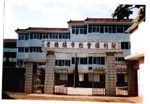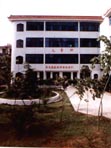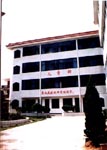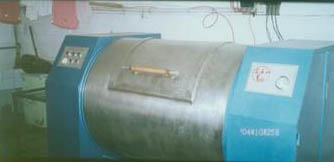Jingdezhen Social Welfare Institute
Click on above photos to enlarge.
About Jingdezhen City
Jingdezhen city is in the county of Fuliang in northeast Jiangxi Province, located on a tributary of the Changhe River, south of the Yangtze. Changhe is the mother river that connects northeast Jiangxi, and is a unique waterway for transporting porcelain from Jingdezhen to the Yangtze River, the ocean and ultimately oversees. Jingdezhen is located between the Huangshan mountain range and the plain of Poyang Lake (the largest fresh water lake in China), and has a population of over 1,520,000. During the Tang Dynasty (AD 618-907), Jingdezhen was named Changnan which meant south of the Chang River. It was originally under the jurisdiction of Fuliang county, and was one of the four major towns in ancient China. During the Song Dynasty, the city was renamed Ching-te-zhen (AD 1004) by Emperor Zhenzong whose reigning title was Ching-te or Jingde. Under the Peoples Republic of China, Jingdezhen became a provincial, county-level, city and now has jurisdiction over Fuliang county, the city of Leping and the two districts of Changjiang and Zhushan.
Jingdezhen is the birthplace of the Chinese porcelain industry and has been famous for manufacturing porcelain since the Northern Song Dynasty (960-1127). During the Ming Dynasty (1368-1644), the Imperial Porcelain Depot was established in the city and Jingdezhen became the porcelain capital of the world. Henry Wadsworth Longfellow (1807-1882) wrote of King-ke-tching in his poem Keramos:
Oer desert sands, oer gulf and bay
Oer Ganges and oer Himalay,
Bird-like I fly, and flying sing
To flowery kingdoms of Cathay,
And bird-like poise on balanced wing
Above the town of King-te-tching,
A burning town, or seeming so, -
Three thousand furnaces that glow
Incessantly, and fill the air
With smoke uprising, gyre on gyre,
And painted by the lurid glare,
Of jets and flashes of red fire.
About the Jingdezhen Social Welfare Institute
The Jingdezhen SWI is a small orphanage located in a low income area on the west side of the Yangtze river. There are at least a few groups adopting from this orphanage each year. Jingdezhen children live in the United States, Canada, Sweden and Spain. The staff, including the directors, speak little or no English and have limited email access. Most communication is done by phone. Many families have observed that the directors have a deep concern for the children.
In the past, the children from Leping (south of Jingdezhen) had their adoptions processed through Jingdezhen and families were told they were from Jingdezhen. (These children have the surname Le) Leping is a county-level city and is managed by Jingdezhen. Prior to 1997, Leping did not have the experience to present the child's materials directly for international adoption, so they had to submit the papers via Jingdezhen. From 1997 on, Leping has had direct relations with international adoption and is now processing their own adoptions. All of the babies from Jingdezhen born in 1997 had the surname Wu. Currently, all of the babies are given the surname Jing, and all children brought to the SWI during a specific year are given the same first name. So, for example, all of the babies brought to the SWI in 2003 were named Jing Wei "something".
In September1998, there was a flood at the Jingdezhen SWI and part of the orphanage was destroyed. Since that time, there was a push to place most of the children in foster care, and as of 2005, there are no babies living at the institute. All of the infants are placed with foster care families, usually the day they are found once a police report has been made. Most of the foster families live very close to the orphanage, and the SWI staff supervises them with visits 1-2 times a month. Usually a foster family raises only one child at a time. There are, of course, many different types of foster care situations, as there are in many countries. As of 2004, the families make approximately $25 (US) per month and is not uncommon for the foster parents to be elderly or widowed with this being their only source of income. Many families have related that they felt their child was well cared for and even loved, while a few have reported stories of malnutrition. Most of the children are very tan and one travel group said that all the JingDeZhen children in their group went with their foster mothers to the fields each day.
In the summer of 2004, one family found out that there are a few infants and toddlers living in the SWI. Each child's situation is different. Some babies have multiple foster parents, some have only one. Some come to the orphanage 2 or 3 weeks early and some stay with their foster parents up until the day they travel to Nanchang. There is no firm set plan for all children.
There were 55 children (older) living at the SWI in August 2004 and each child required six bags of milk a month. One of the families spearheaded a drive to raise money to purchase an industrial washing machine for the SWI, which was accomplished and the washing machine was delivered in October. The photographs below show it installed at the SWI.
|
|
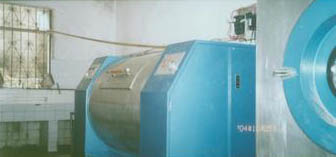 |
Experiences of families adopting from Jingdezhen
![]() Dideon Family Blog (Day
15 visit to Jingdezhen -
Day 16 visit to Jingdezhen)
Dideon Family Blog (Day
15 visit to Jingdezhen -
Day 16 visit to Jingdezhen)
![]() New Day Foster Home in Beijing is expanding services
New Day Foster Home in Beijing is expanding services
![]() From China
with Love: Nina Berg
From China
with Love: Nina Berg
![]() How You Can Help the Children
Still in the Jiangxi Province Orphanages!!
How You Can Help the Children
Still in the Jiangxi Province Orphanages!!
Find an address for this orphanage (and print out an address label in Chinese) at http://www.blessedkids.com/index_files/addresses.htm
Photos of Children Adopted from Jingdezhen
| Jing Yu Mei | Li Min | Jing Yuqing |
Jing Wulin |
|---|---|---|---|
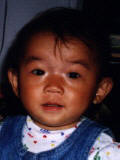 |
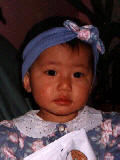 |
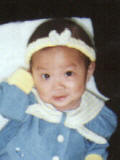 |
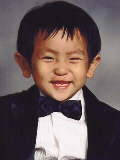 |
| Born 12/14/95 | Born 8/12/94 | Born 11/21/95 | Born 7/25/02 |
| Adopted 11/5/97 | Adopted 10/15/95 | Adopted 7/15/96 | Adopted 2/4/04 |
| Li Xin Jiao | Li DongYing | Jing Guang Yu | Jing Xiaoju |
|---|---|---|---|
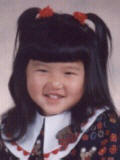 |
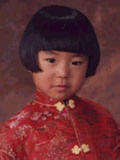 |
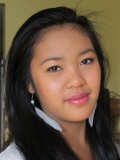 |
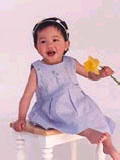 |
| Born 3/14/94 | Born 11/17/94 | Born 4/7/98 | Born 3/16/99 |
| Adopted 3/4/96 | Adopted 12/10/97 | Adopted 2/1/99 | Adopted 1/27/00 |
| Jing Yuan Hong | Jing Yuan Li | Jing Yue An | Jing Yu Dong |
|---|---|---|---|
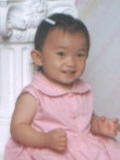 |
 |
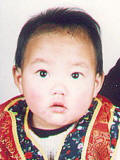 |
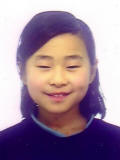 |
| Born 2/21/00 | Born 2/23/00 | Born 4/14/01 | Born 11/19/95 |
| Adopted 12/00 | Adopted 12/24/00 | Adopted 7/14/02 | Adopted |
| Jing Wei Yu | Jing Shen Zhi | Jing Shen Qiu | Jing Wei Huai |
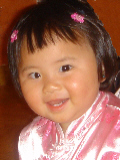 |
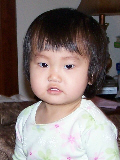 |
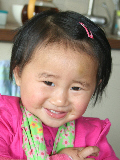 |
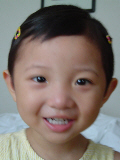 |
| Born 9/20/03 | Born 9/7/04 | Born 10/20/04 | Born 7/3/03 |
| Adopted 10/25/04 | Adopted 6/29/05 | Adopted 3/2/06 | Adopted 7/16/06 |
| Jing Shen Shi | Jing Wu Mai | Your Child | Your Child |
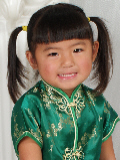 |
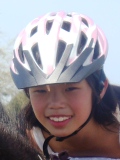 |
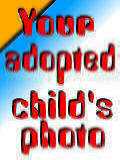 |
 |
| Born 7/6/04 | Born 4/3/02 | CLICK |
CLICK |
| Adopted 6/29/05 | Adopted 2/03 |
If you would like to contribute photos or information to this website or join our Jiangxi family directory (information not posted at the website) please e-mail me at webmaster@gurrad.com

